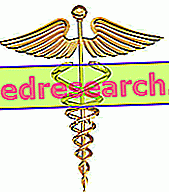The pathogenesis investigates the development of a disease and the chain of events associated with it, which step by step determine morpho-functional changes of the cells and tissues belonging to the affected organs. These alterations can be caused by chemical, physical, or biological agents (viruses, bacteria, etc.).

While the etiology defines the causes, the pathogenesis studies its consequences.
In reading medical texts we can therefore come across them in terms such as: microbial pathogenesis, inflammatory pathogenesis, viral pathogenesis, malignant pathogenesis (tendency of a disease, generally tumor, to worsen progressively to become potentially lethal). Many diseases recognize different causal factors (multifactorial aetiology) and even more numerous are those characterized by different evolutionary mechanisms (multiple pathogenesis).



